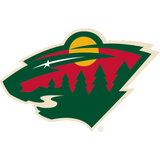
Wild players anxious as latest mumps outbreak hits NHL

Minnesota Wild forwards Zach Parise and Jason Pominville are among the players effected by the NHL's latest mumps outbreak.
The return of the mumps has caught some NHL players by surprise and they are counting on the league being better equipped to deal with the second such outbreak in a little over two years.
"Well, it happened the one time, and guys were concerned about it and thought it was going to be kind of gone forever," Buffalo Sabres veteran forward Kyle Okposo said Tuesday. "I just hope it doesn't reach us. I feel for the guys that have it. Just want to make sure that it gets as contained as we can this time."
The latest outbreak began in Vancouver, where the Canucks announced last weekend defenseman Troy Stecher had been diagnosed while six other players and a trainer were showing symptoms. On Monday, the Minnesota Wild announced forwards Zach Parise and Jason Pominville and assistant coach Scott Stevens were diagnosed with the highly contagious disease and must miss at least three games.
The developments raised concern after what occurred during the first half of the 2014-15 season: 24 players, including Pittsburgh star Sidney Crosby, representing five teams and two on-ice officials either showed symptoms or were diagnosed with the mumps.
The Wild were also affected in 2014, when five defensemen contracted the virus.
"I don't know what to say to that. It's a lot for one team in a few years," said Wild forward Mikael Granlund, whose brother, Markus Granlund, was among the Vancouver players showing symptoms.
There was enough worry in Minnesota that center Eric Staal wondered of the potential danger of players rubbing gloves against teammates' faces during the celebration following a 5-4 overtime win against Los Angeles on Monday night.
"If someone had it in that pile, then we all got it," Staal said. "So we'll see what happens."
Wild doctors recently provided players and staff with measles-mumps-rubella vaccination, as they did in 2014. The Wild equipment staff also uses a chemical spray on locker room cubicles each time players come off the ice. And Minnesota is one of 27 NHL teams using a Sani Sport machine to disinfect players' equipment.
In Vancouver, public health officials have yet to determine where or how Canucks players contracted mumps, Vancouver Coastal Health spokesman Gavin Wilson said. Wilson added the Vancouver region is not showing any signs of a spike in the mumps virus, unlike neighboring Washington State, which had a reported 503 cases already in 2017, as opposed to just 48 last year.
There have been other pockets of outbreaks across the continent this year, including the University of Missouri, which reported more than 320 confirmed and probably cases earlier this month.
From Jan. 1-28, the Centers of Disease Control and Prevention said there have been 485 mumps infections reported in the United States, which already surpasses the 229 cases reported in 2012. Since 2000, there have been only two years -- 2006 and 2016 -- in which the number of mumps cases have topped 3,000.
Mumps can be spread by saliva or mucus. The virus has a 12- to 30-day incubation period. It's typical symptoms are fever, headache, muscle aches and loss of appetite, followed by swollen salivary glands.
The CDC notes that while mumps are "no longer very common" in the U.S., outbreaks do occur particularly in places where people have had prolonged close contact with a person with the virus, such as school, dorms or sports teams.
In an email to The Associated Press, NHL Deputy Commissioner Bill Daly wrote it's unclear what prompted the recurrence. As for how the league is attempting to contain the latest outbreak, Daly wrote: "Education, reinforcement of precautions and booster shots, where necessary."
Though booster shots work, they are only considered effective 88 percent of the time.
In Buffalo, Sabres equipment manager Dave Williams said a protocol is put into place the moment a player shows any sign of sickness, even when involving what appears to be the common cold. The protocols include having players drink from their own water bottles, using hospital-strength disinfectant laundry detergent to wash the player's uniform separately.
The first professional hockey-related case of mumps this year occurred last month, when three members of the New Jersey Devils' AHL affiliate in Albany, New York, contracted the virus.
Nashville Predators defenseman P.K. Subban said there's very little players can do to avoid getting mumps other than taking precautions.
"Professional sports is where all teams intertwine. We all touch every rink," said Subban, noting the Predators played both the Wild and Canucks over the past three weeks. "We've just been told to make sure our shots are up to date and wash our hands. That's it. That's all you can do."
